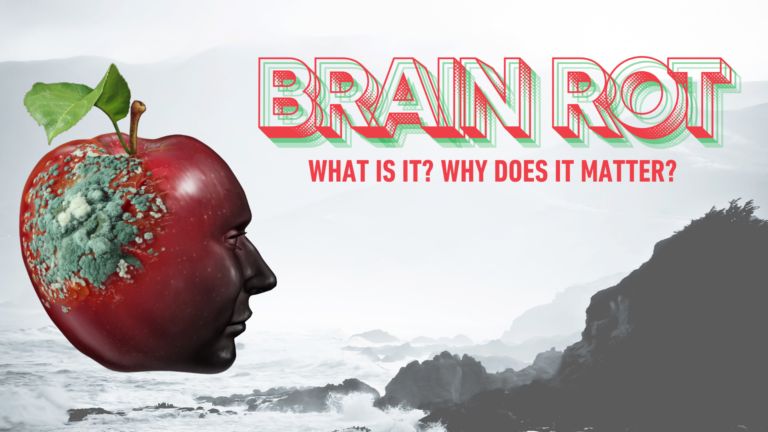Have you ever felt like you don’t truly deserve your achievements, even when you’ve worked tirelessly for them?
That persistent voice whispering, “What if I’m not good enough?” is all too common. It’s called Imposter Syndrome, and it affects even the most accomplished professionals, holding them back from embracing their full potential.
If this resonates with you, you’re in good company.
Research shows that 70% of people experience imposter syndrome at some point, with senior leaders particularly vulnerable. A study by KPMG revealed that 75% of executive women have struggled with it during their careers.
Despite its prevalence, imposter syndrome often goes unspoken, leaving many of us to battle these feelings alone. But here’s the truth: recognising these doubts is the first step to overcoming them and stepping into your brilliance.
The Roots of Imposter Syndrome
Marianne Williamson’s words from A Return to Love have always held deep meaning for me:
“Our deepest fear is not that we are inadequate. Our deepest fear is that we are powerful beyond measure. It is our light, not our darkness, that most frightens us.”
It’s often easier to diminish ourselves than to own our power. We tell ourselves, “Who am I to be brilliant, talented, and successful?” But the real question is, “Who are you not to be?”

From a neuroscience perspective, imposter syndrome stems from our brain’s amygdala, which is designed to protect us from perceived threats like failure or rejection. When we step into new roles or situations, this “fear centre” can go into overdrive, fuelling self-doubt. Combine this with societal and cultural pressures, and it’s no wonder so many of us feel like we don’t belong.
A Defining Moment
In the early 1990s, I joined a fast-track Women in Leadership mentoring program while working at Westpac Bank. It was an incredible opportunity, yet I found myself questioning whether I truly deserved my place. Then I came across Williamson’s transformative quote, and it completely shifted my perspective.
I realised that my fear wasn’t about inadequacy—it was about stepping into my power.
What if I tried and failed? What if I tried and succeeded? Was I ready to embrace success at the highest level and what could that cost me along the way? Was I good enough? Did I deserve this? These were areas that I explored with my mentor to find the confidence and readiness to step forward.
That realisation gave me the courage to embrace my potential and share my unique light with the world.
That moment was the inspiration for my company, Shine Executive. I wanted to create something that would help others find their own light, step out of the shadows of self-doubt, and shine brightly in their personal and professional lives.
Why Do Women Experience Imposter Syndrome More?
Studies show women experience imposter syndrome more frequently than men, especially in leadership roles or male-dominated industries. Women are 25% more likely to struggle with self-doubt, particularly high achievers. This is due to several factors:
- Societal Expectations: Women are often socialised to be self-critical and perfectionistic, which extends beyond work to every aspect of their lives, making them feel inadequate even when they succeed.
- Underrepresentation in Leadership: Women in leadership roles may feel the need to constantly prove themselves, which increases self-doubt.
- Bias and Stereotypes: Gender biases create pressure to meet higher standards, making it harder for women to internalise their successes.
Moving Beyond Limiting Beliefs
Imposter syndrome might feel overwhelming, but it’s something you can overcome. Here are five strategies to help you move past self-doubt and embrace your brilliance:
- Acknowledge the FeelingRecognise imposter syndrome for what it is—a temporary and universal experience. Naming it is a powerful first step.
- Realise it is a Subconscious Reaction When we choose to override the subconscious reaction which is designed to keep us safe and protect us from rejection, we can open up new possibilities by consciously choosing our beliefs and actions.
- Reframe Your Inner Dialogue Instead of thinking, “Who am I to succeed?” ask yourself, “Who am I not to?” Challenge negative beliefs with affirmations of your worth.
- Celebrate Your Achievements Keep a journal of your successes. When doubts creep in, revisit your list to remind yourself of everything you’ve accomplished.
- Seek Support Talk openly with mentors, colleagues, or trusted friends. You’ll often find they’ve experienced similar feelings—and their perspective can provide valuable reassurance.
- Step Into Your Power Remember, as Williamson so beautifully wrote, “Your playing small does not serve the world.” By owning your brilliance, you inspire others to do the same.
The Importance of Shining Brightly
When you push past imposter syndrome and own your light, the impact is profound—not just for you, but for everyone around you. Confident, authentic leaders foster innovation, trust, and empowerment.
To be a role model and someone your team looks up to, you must first embrace your own power. It’s important to be authentic and acknowledge your feelings, but true leadership shines when you show, through your actions, how you’re working to overcome challenges and grow into the best version of yourself.

Stepping into your brilliance isn’t about arrogance; it’s about recognising your value and making a meaningful contribution. The world needs your unique skills, insights, and leadership.
My Wish for You
At Shine Executive, my mission is simple: to help you see your light, own it, and share it with the world. These words from Marianne Williamson continue to guide me:
“As we let our own light shine, we unconsciously give other people permission to do the same.”
So, I ask you: Is there anything holding you back from stepping into your brilliance? Are you ready to let go of the doubts, trust in your value, and shine?
The world is waiting for you to step forward and SHINE. It’s not just in some of us, it’s in everyone.
And when we get this right, everything becomes much easier.
The better it gets, the better it gets!
At Shine Executive, we love supporting organisations to create a high-performance culture by bringing out the best in their people. We can help your people succeed personally and professionally.
Our High Performing Teams, Sales Leadership and Psychological Safety workshops are here to help build cohesive, engaged, productive and effective teams.
We are here to help with speaking, consulting, training, conferences, coaching or offsite events and specialise in the following areas:
High Performing Teams | Leadership | Sales Training | EQ & Neuroscience | Financial Services Sales & Service | DISC Personality Profiles | Five Behaviours of Cohesive Teams | Positive Psychology | GROWTH Coaching
Our bespoke people and performance solutions are created to meet your unique business needs, time available and working environment – so if you have something that’s important to you why not Book your free 30 minute call now to discuss. We’d love to hear from you.
Or contact us at naomi@shineexecutive.com.au or +61 423 936090.

Naomi Oyston has more than twenty years leadership experience within the Corporate, Financial and SME Business sectors. She has had extensive executive level success, with direct responsibility for leading the implementation and performance assessment of Customer Service Excellence, Sales Performance, Performance Coaching, Organisational Culture, Productivity and Leadership training within multiple major corporations.
Passionate, engaging and insightful, Naomi specialises in helping business leaders to create High Performing teams through a combination of mindset, toolkits and skillsets that are street proven to deliver results that matter.




